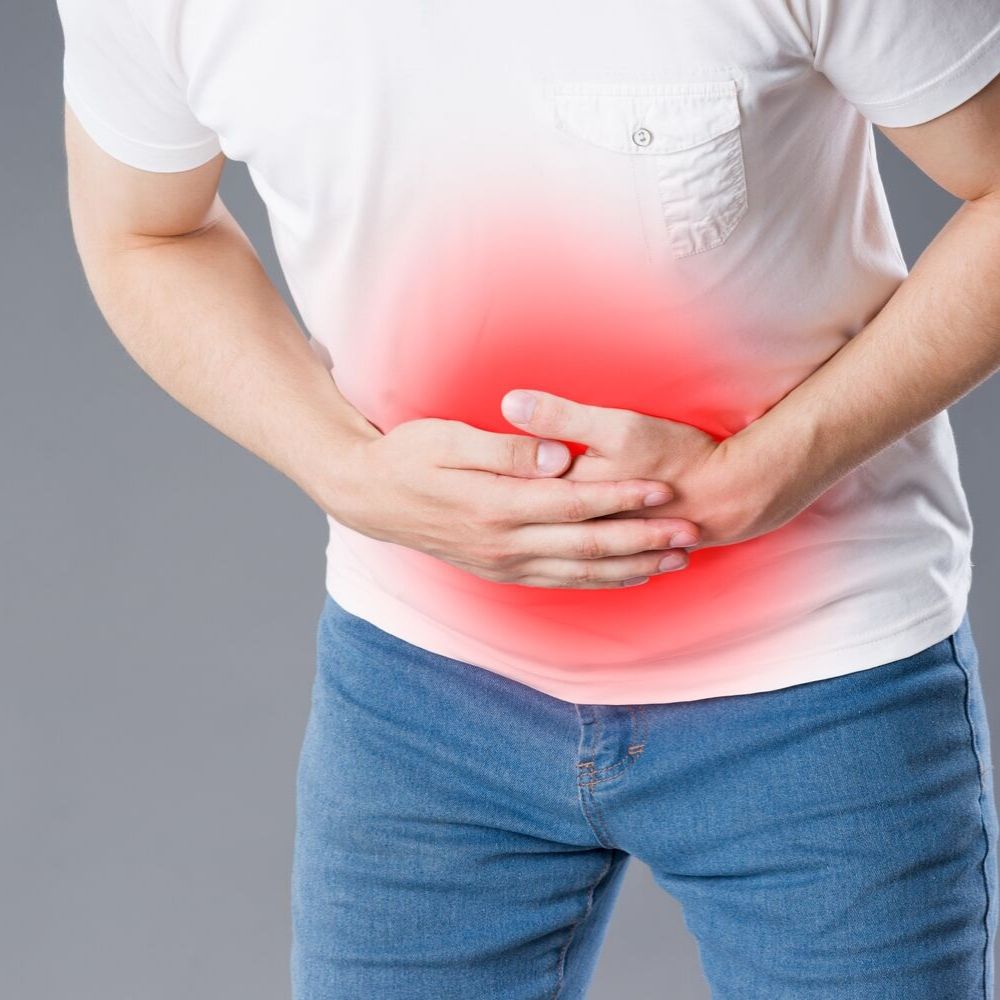Abdominal Pain
Overview | Possible Causes | Care and Treatment | HOME REMEDies | When to Call the Doctor | References

Overview
Everyone experiences abdominal pain from time to time. Other terms used to describe abdominal pain are stomachache, tummy ache, gut ache and bellyache. Abdominal pain can be mild or severe. It may be continuous or come and go. Abdominal pain can be short-lived (acute) or occur over weeks, months or years (chronic).
Call your doctor right away if you have abdominal pain so severe that you can't move without causing more pain, or you can't sit still or find a comfortable position.
Seek immediate medical help if pain is accompanied by other worrisome signs and symptoms, including:
- Severe pain
- Fever
- Bloody stools
- Persistent nausea and vomiting
- Weight loss
- Skin that appears yellow
- Severe tenderness when you touch your abdomen
- Swelling of the abdomen
Possible Causes
Whether it is a mild stomach ache, sharp pain, or stomach cramps, abdominal pain has numerous causes. These include:
- Indigestion.
- Constipation.
- Stomach flu.
- Menstrual cramps.
- Food poisoning.
- Food allergies.
- Gas.
- Lactose intolerance.
- Ulcers.
- Pelvic inflammatory disease.
- Hernia.
- Gallstones.
- Kidney stones.
- Endometriosis.
- Crohn’s disease.
- Urinary tract infections.
- Cancer
Care & Treatment
Treating abdominal pain depends on its cause. Options include:
- Medications for inflammation, gastroesophageal reflux disease or ulcers.
- Antibiotics for infection.
- Changes in personal behavior for abdominal pain caused by certain foods or beverages.
- Local or spinal injections of numbing agents or corticosteroids by pain management physicians.
In more severe cases like appendicitis and hernia, surgery is necessary.
Home Remedies
If you aren’t sure if you need to seek medical advice for belly pain, contact your doctor or other health care professional before using any home remedies.
Common home remedies and over-the-counter (OTC) medicines include:
- Eat less food
- Take small amounts of baking soda
- Use lemon and/or lime juice
- Start a BRAT diet (banana, rice, applesauce and toast) for a day or so for symptom relief.
- Don’t smoke or drink alcohol.
Some health care professionals recommend:
- Taking ginger
- Peppermint
- Licorice
- Chamomile tea
- Medications such as bismuth subsalicylate (Pepto-Bismol), loperamide (Imodium), ranitidine (Zantac) and other over-the-counter substances
Some of these may help reduce symptoms, but if symptoms persist, seek medical care. Beware of "cures" advertised as a single treatment that can cure all causes of this problem because no such remedy or cure exists.
Taking aspirin or NSAIDs should be avoided until the cause of the pain is diagnosed because the medications could make some causes worse (for example, peptic ulcers, intestinal bleeding).
When to Call the Doctor
Call 8866020505 or emergency medical assistance
Seek help if your abdominal pain is severe and is associated with:
- Trauma, such as an accident or injury
- Pressure or pain in your chest
Seek immediate medical attention
Have someone drive you to urgent care or the emergency room if you have:
- Severe pain
- Fever
- Bloody stools
- Persistent nausea and vomiting
- Weight loss
- Skin that appears yellow
- Severe tenderness when you touch your abdomen
- Swelling of the abdomen
Schedule a doctor's visit
Make an appointment with your doctor if your abdominal pain worries you or lasts more than a few days.
In the meantime, find ways to ease your pain. For instance, eat smaller meals if your pain is accompanied by indigestion.
Avoid taking over-the-counter pain relievers such as aspirin or ibuprofen (Advil, Motrin IB, others) because these can cause stomach irritation that may worsen abdominal pain.






































































































